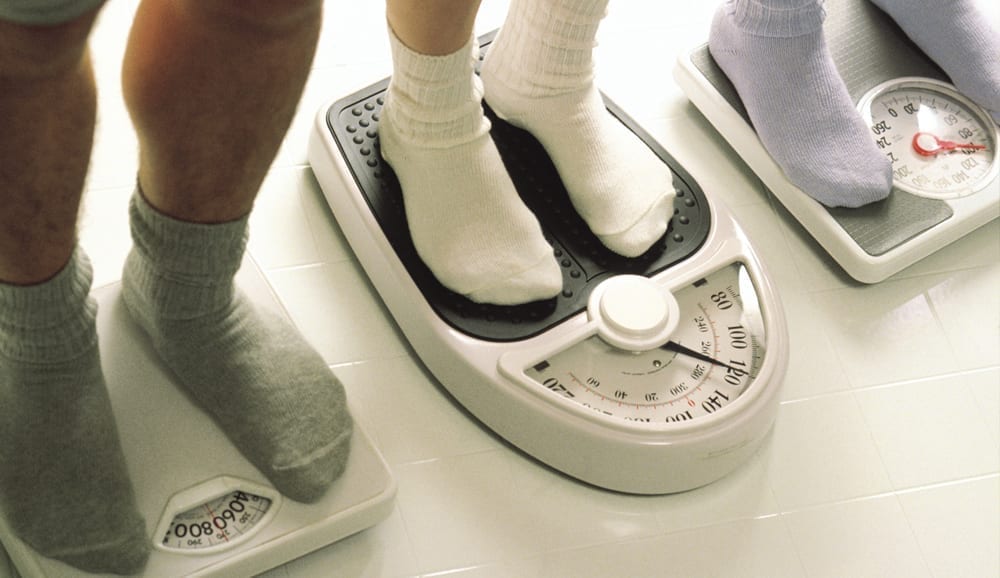Rev Up Your New Year’s Resolutions with Fresh Fish Oil
Every New Year, we make plans to get our health back on track, be it by losing weight, sleeping more, giving up fries, or starting yoga. But making permanent change isn’t easy. After a few weeks of sticking to the straight and narrow, it’s easy to fall back into old habits.
Resolutions are easier made than kept, but there are some techniques that can assist us in reaching our goals. In this case, I am talking about a slightly unconventional aid – namely, fresh omega-3 fish oil.
So can fresh fish oil help you with your New Year’s resolutions? Let’s look at how omega-3 fatty acids impact three of the most commonly made health goals: exercise more, lose weight and reduce stress.
Improving Exercise Outcomes with Fish Oil
Most of us need to exercise more, and we all know it. We spend too much time in front of the computer or television at home, and too much time sitting at the office. Come the New Year and a fresh gym membership, we want to make sure we stick with our plan. That’s exactly where fish oil can help.
There are several reasons why omega-3 fish oil can make exercising easier. For one, taking an effective dose of omega-3 fish oil every day can provide pain relief equivalent to the effect achieved with non-steroidal anti-inflammatory drugs (NSAIDs), like Naproxen or Ibuprofen. This is especially beneficial for those of us who tend to get sore after working out, hampering our desire to get back to the gym.
To get these pain-relieving benefits, however, dose matters. As Australian rheumatologists discussed in their article, “Fish Oil: What Prescribers Need to Know,” most physicians and patients are unaware that taking one or two capsules of omega-3 fish oil does not provide enough EPA/DHA to make a difference. Readers should note that the body needs 2700 mg of EPA/DHA every day to achieve pain relief.
On the plus side, fish oil does not produce any of the serious side effects seen with the long term use of NSAIDs (1). You can enjoy reduced muscle aches and improved recovery time after exercise, without worrying about the rest of your health being compromised.
Studies indicate that taking fish oil in conjunction with exercise seems to strengthen the muscles more than exercise alone.
Besides delivering a natural pain relieving effect, omega-3 fish oil also impacts how muscle cells function. When researchers put omega-3 supplements to the test in a training context, they find taking fish oil in conjunction with exercise seems to strengthen the muscles more than exercise alone (2).
There are several studies exploring this phenomenon. To mention just one, a 2012 study from Brazil looked at how postmenopausal women responded to omega-3 supplements in conjunction with their exercise regimen. Researchers found that the women who took fish oil and exercised experienced increased muscle strength compared to women who exercised without added fish oil supplementation (3).
The Benefits of Omega-3s for Weight Loss
Losing weight is another common and challenging New Year’s resolutions. Here again, fish oil, as well as oat fiber (the two key ingredients in Omega3 Innovations’ Omega Cookie®), can make a significant difference.
So how is that fish oil, a pure fat, can function as part of an effective weight loss plan? The omega-3s in the fish oil act on the hunger hormones, helping signal the brain that the stomach is full. Furthermore, because fish oil also influences the stress hormones, it can decrease the natural stress that comes with reducing daily calorie consumption (4).
Oat Fiber Helps Too
Oat fiber also makes an enormous difference when it comes to weight loss. The longer food stays in the stomach before passing to the intestines, the less hungry we feel. Fortunately, soluble oat fiber has staying power. It binds with the liquids in the stomach to create a thick gel that slows stomach muscle contractions, making it an ideal weight management tool (5).
In addition, oat fiber plays a prebiotic role in the large intestine. The gut flora, which seems to influence a person’s appetite and metabolism, changes depending on the food we consume. Diets high in processed carbohydrates and sugar promote unhealthy gut flora, while the good gut flora flourishes on oat fiber (6). Healthy gut flora in turn helps promote healthy weight control.
Omega-3s act on the hunger hormones, helping signal to the brain that the stomach is full.
Improving Mood with Fresh Fish Oil
For the New Year, many of us wish we could feel less stressed on a regular basis. Fish oil doesn’t make day-to-day problems go away. However, many studies indicate that full-spectrum omega-3s help reduce stress and provide therapeutic benefits for people suffering from mood disorders.
One theory behind the positive power of omega-3 fish oil is that it influences neurotransmitters, like serotonin, or the “happiness hormone” (7). In addition, people with depressive and anxiety disorders commonly have low levels of omega-3s in their blood (8). That deficiency might explain why people with depression experience mood-lifting benefits when they restore the proper balance of fatty acids in their body.
Dose and Freshness Matter
All of these benefits, of course, come with one caveat: To be effective, one’s omega-3 supplement needs to be fresh (non-rancid), consumed daily and taken in an adequate dose. That means one or two capsules here or there won’t cut it. For instance, you would need to consume approximately 10 regular fish oil capsules daily to match the same dose used in the studies demonstrating fish oil’s pain relieving effect.
Still, taking fish oil daily does not need to be painful. You can enjoy an effective dosage of omega-3 fatty acids as a breakfast cookie or as a neutral-tasting oil added to juices, smoothies and yogurts.
Cheers to a fresh New Year and best of luck with your resolutions!
1. Cleland et al. “Fish Oil: What the Prescriber Needs to Know.” Arthritis Research & Therapy, 8 (2006) : 202.
2. Martinsen, Bo and Chalmers, Anne-Marie. “Improve Your Workout with Omega-3 Fish Oil.” Omega3 Innovations. February 25, 2012.
3. Rodacki et al. “Fish-oil Supplementation Enhances the Effects of Strength Training in Elderly Women.” PubMed, January 4, 2012.
4. Parra et al. “A Diet Rich in Long Chain Omega-3 Fatty Acids Modulates Satiety in Overweight and Obese Volunteers During Weight Loss.” PubMed, June 14, 2008.
5. Hall, McKenzie. “Fiber Facts About Cereal.” Today’s Dietitian, 14, 12 : 30.
6. Khoury et al. “Beta Glucan: Health Benefits in Obesity and Metabolic Syndrome.” Journal of Nutrition and Metabolism, (2012).
7. Hamazaki et al. “Fish Oils and Aggression or Hostility.” PubMed, March 4, 2008.
8. Parker et al. “Omega-3 Fatty Acids and Mood Disorders.” The American Journal of Psychiatry, 10 (2006) : 163.
Popular posts



Related posts









